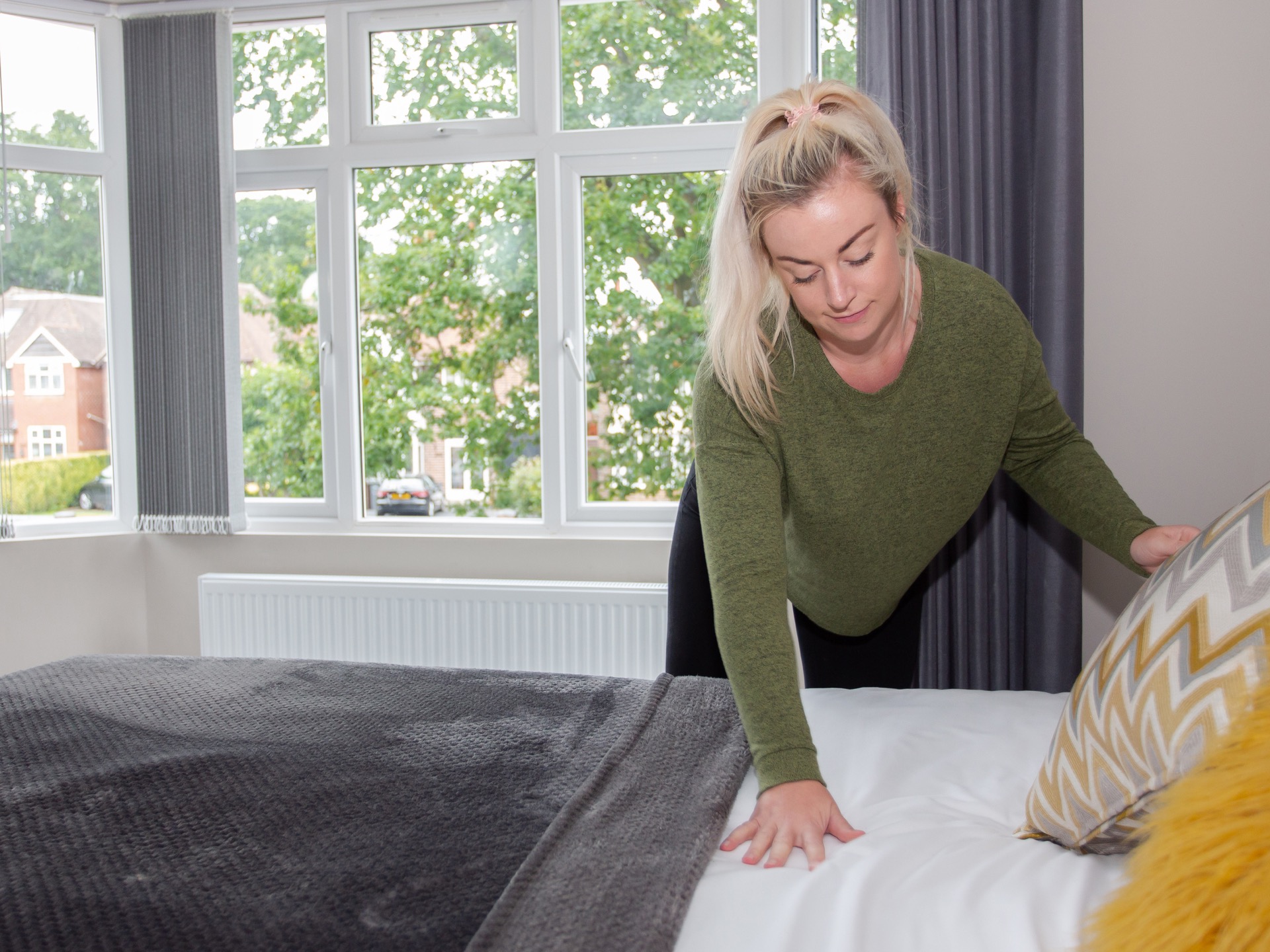A Specialist Guide to Caring for Dementia at Home
What is Dementia?
“Dementia is an umbrella term for a range of progressive conditions that affect the brain,” according to Dementia UK, a leading dementia charity. Put simply, when a person’s brain cells are prevented from working properly by a particular disease, such as Alzheimer’s, it affects their ability to think, speak and remember information.
Terminology can be muddling when you first receive a diagnosis of dementia as many people think that the term ‘dementia’ is the disease itself, but it isn’t; “Doctors typically use the word ‘‘dementia’’ to describe common symptoms – such as memory loss, confusion, and problems with speech and understanding – that get worse over time.” Dementia can be diagnosed at various stages but is most common in people aged over 65.

Why is Homecare Beneficial for People with Dementia?

There are many diseases or conditions that cause dementia symptoms; in fact, there are now over 200 recognised subtypes according to Dementia UK, and the most common are Alzheimer’s disease, vascular dementia, dementia with Lewy Bodies, frontotemporal dementia and mixed dementias. Over one million people in the UK are now living with dementia, and the figures are predicted to continue rising. Being diagnosed with dementia can be an unsettling time for the person and their loved ones, who will understandably worry about what the future may bring.
Learning that you have dementia doesn’t mean that you’re about to lose your independence and you’ll immediately need care, you may be able to carry on at home just as you always have, with a small amount of support. However, as your dementia journey progresses, you may find it more difficult to manage without significant help at home, and that’s where Helping Hands can make all the difference to your daily life. Ensuring the right elderly care can provide the support and reassurance needed to help individuals with dementia continue living safely and comfortably at home.
What are The Key Roles of A Dementia Caregiver?
Our dementia caregivers are carefully chosen because they understand how best to support people living with dementia. They have all of the essential qualities that will enable you to continue enjoying your home as you always have, including:
Compassion
Kindness
Empathy
Patience
Common sense
Experience
Confidence
Competence
Tips for Creating a Suitable Environment for Care
Creating a suitable environment when caring for dementia could be simply making sure that the person is comfortable and has everything they need, however other things that should be kept in mind, include:
Safe spaces
If there is a danger that the person may inadvertently harm themselves in their home then everything that poses a danger should be made safe. This could be a locking cooker valve (LCV) for instance.
Clutter-free environment
Keeping clutter to a minimum will ensure that a space is safer to walk around in, reducing the risk of trips and falls. Having a good clear-out can also benefit mental health.
Adequate food/drink
Having enough to drink and the right types of food for your condition will make a difference to your general well-being. Lack of hydration can also lead to increased confusion in many cases.
Accessible bedroom
You need a peaceful place to sleep to ensure that you get enough rest. Lack of sleep can also increase confusion in many cases and not having a suitable bed can also prevent adequate rest.
Appropriate equipment
If you are struggling with your mobility or dexterity, having appropriate equipment, such as a walking frame or cutlery with rubber grips, will help you to remain independent and safe at home.
Appropriately warm/cool
It’s important to ensure that you are always warm or cool enough at home or your well-being could suffer. Your carer will recognise the signs so that they can act appropriately and support you.
How Do I Handle Behaviour That Challenges When Caring for Dementia?
It’s not unusual for people living with dementia to exhibit behaviour that challenges when in the later stages of their dementia journey. The most important thing to remember when someone displays such behaviour is “Always try to see things from the person’s perspective,” the Alzheimer’s Society says.
“People with dementia can sometimes find it hard to understand what’s going on around them. This can be confusing and frightening for them.”
Family members might not understand why their loved one is behaving this way – such as walking endlessly around the house or getting up in the middle of the night – but by examining the way they live their life it might give some clues and prevent frustration. Looking at the person’s working life, for instance, may reveal that they used to get up in the early hours every day.

Recognising the Signs of Carer Fatigue

Caring for someone living with dementia can be immensely rewarding, but it can also be exhausting at times. Trying to determine what the person is communicating can help reduce carer fatigue and stabilise patience levels because it is less draining on the person providing care. By ‘stepping inside the person’s world’, their caregiver can work out what the person needs, and by helping the person to live as well as possible the carer’s motivation will remain high too.
If a family caregiver is feeling that they need a break, it is essential that they seek help and arrange for some cover from an external care company. Otherwise, their fatigue will continue to grow, and it will impact heavily on both them and the person they support. Respite care is available at home in your area from Helping Hands.
Explore Specialist Dementia Care with Helping Hands
Because Helping Hands have been supporting people living with dementia since we were established in 1989, we really are the UK’s dementia care at home experts. Our fully-trained carers are chosen specifically for their natural qualities of compassion and kindness and go through a rigorous training and assessment programme when they join us. As the UK’s most widely trusted home care provider, we consider it our responsibility to always deliver the highest quality care, all fully regulated by the Care Quality Commission and the Care Inspectorate Wales, and our exceptional amount of positive Trustpilot reviews demonstrates this. Helping Hands’ industry-leading home care service has been reviewed by 3450 people, and our 150 branches across England and Wales are staffed by local care teams delivering incredible support for people in their area. Chat to us today about dementia care on a visiting or live-in care basis where you live.
